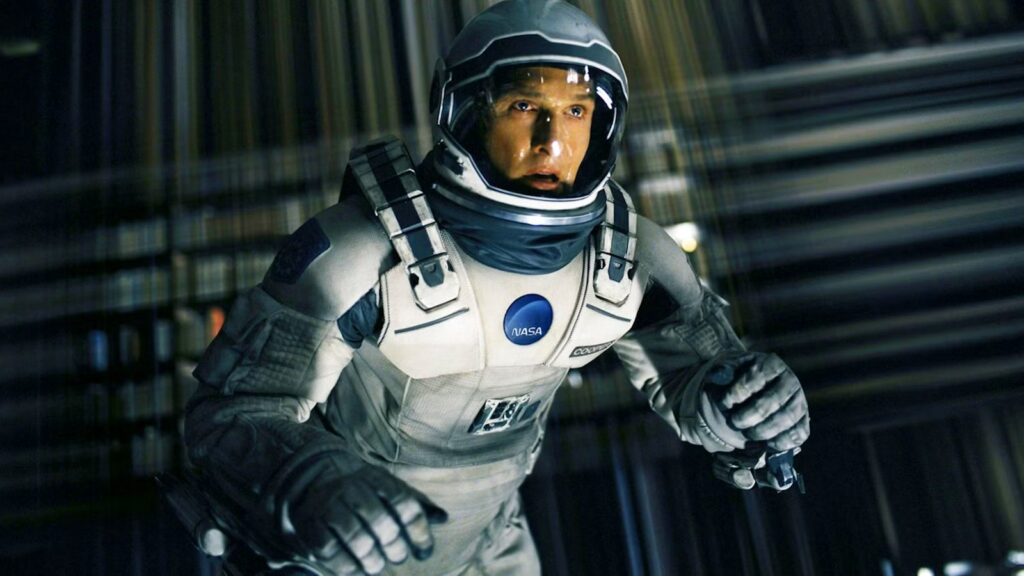I really love the idea of a piece of media that takes place over different generations, whether it’s a family or just a group of people and their offspring. Often times, we don’t get to see the long-term repercussions of events that unfold in a narrative. While that can be fine for a lot of media, especially movies that have limited time in which to tell a story, there’s something fun about seeing a fictional world change over time.
Personally, I think this allows a writer or writers to really expand their creativity or come up with interesting themes that can tie into subjects like generational trauma or the advancement of technology. Whatever the case, it’s a strategy that’s proven to work well throughout the history of both television and movies, and I think I’ve found the examples that represent the best of this storytelling technique.
There Will Be Blood
And lots of it
There Will Be Blood tells the tale of the rise of oil tycoon Daniel Plainview (Daniel Day-Lewis), and how it affects those who come into contact with him. Daniel doesn’t exactly start off as a good person, but as There Will Be Blood journeys through the years, he becomes more and more unhinged. It’s a brilliant character study, with one of my favorite movie moments of all time contained within.
There Will Be Blood takes place from 1898 all the way through 1927, and you can feel that passage of time in how Daniel becomes more and more power hungry. Day-Lewis does a fantastic job of showing us this change in character, even if he fundamentally remains the same man throughout. It’s not exactly a film that includes generations of characters, but There Will Be Blood uses its time-skipping narrative device to great effect.
Interstellar
A story that transcends time and space
What I love about Interstellar, other than everything, is how it utilizes the concept of time travel. Rather than some machine or device, it uses the concept of a black hole and time dilation. While it greatly exaggerates these effects, time dilation is very much a real thing, which is probably why Interstellar is a great time-travel film that actually tries to get the science right.
So while main character Cooper (Matthew McConaughey) goes through the film staying the same age, everyone he knows on Earth becomes older and older, until eventually even his children are older than he is. It’s a heartbreaking thing to witness, but fascinating to see how humanity changes and advances and eventually becomes a space-faring species. Interstellar uses the lens of generational time travel to speak to the relentless nature of human survival, and it’s a joy to watch.
Interstellar
Release Date
November 7, 2014
Runtime
169 Minutes
The Crown
Six decades of royal affairs
I’ll admit that I’m not the biggest fan of period pieces like The Crown, but I’m intrigued by real-life figures, and the decades-spanning gimmick the show utilizes drew me in. And it’s worth the six-season journey the show takes you on. Focusing on Queen Elizabeth II’s rise to power, The Crown’s story takes place between 1947 and 2005. The show loses steam in its final two seasons, but I can’t deny how ambitious it was throughout.
In fact, I enjoyed The Crown‘s storytelling so much that I’ve been hoping for other shows about famous historical figures to do the same thing. It doesn’t even necessarily have to be royal figures or powerful people, but the idea of a show recasting its lead every few years with someone older is such a simple but effective little trick. Give us more of that kind of creativity.
the-crown-tv-series-netflix.jpg
The Crown
Release Date
2016 – 2023-00-00
Writers
Peter Morgan
Taken
No, not the Liam Neeson one
While many might hear the title Taken and think of the thriller films starring Liam Neeson, there’s an excellent little miniseries from 2002 with the same name, and it was produced by none other than legendary filmmaker Steven Spielberg. Taken tells the story of four generations of three families that takes place over five decades. Each of these families is connected to one another through government conspiracies and extraterrestrials who have plans for all of them.
Taken is a sweeping epic miniseries with a lot of ambition. It was made during a time when miniseries were far more popular than they are now (though the limited series has become a popular staple instead), and it’s one of the best examples of what storytellers could do in the medium. Taken becomes more complex and interesting with each passing episode, all leading to a conclusion that feels just as epic as any of Spielberg’s big budget movies.
Taken
Release Date
2002 – 2001
Network
SyFy
Directors
Thomas J. Wright, Sergio Mimica-Gezzan, Tobe Hooper, Breck Eisner, Bryan Spicer, Félix Enríquez Alcalá, Jeff Woolnough, Jeremy Kagan, John Fawcett
Andy Powers
Eric Crawford
Chad Donella
Jacob Clarke
Dakota Fanning
Allie Keys
Decades-spanning media needs to be more prevalent
These are some of the better examples of shows and movies that ambitiously take place over many decades or generations, but I still think it’s a narrative device that’s ripe for experimentation in the modern world of visual media. Especially with ever-growing budgets for both film and television, it’s something that Hollywood could really lean into for something epic that can stand the test of time. It’s just about finding the right story for it.
Speaking of finding the right story, check out the best horror films of 2025, which was one of the best years for the genre in recent memory.

